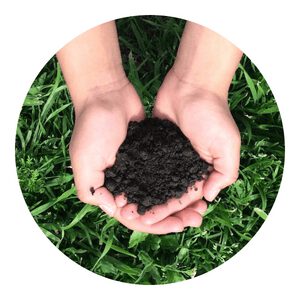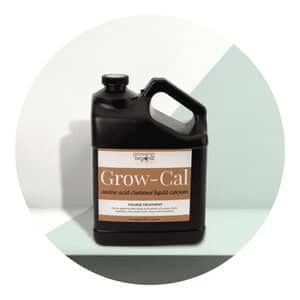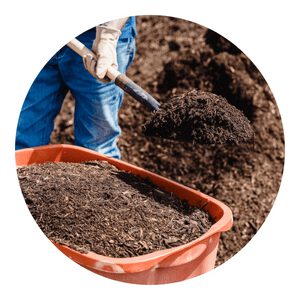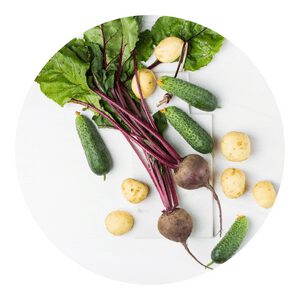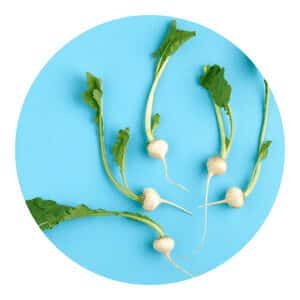The Best Organic Fertilizer For Radish
Organic gardening is becoming more and more popular among green-thumbed individuals looking for an environmentally friendly way to grow their crops.
As organic gardeners search for the best fertilizer for their radish plants, they may find themselves overwhelmed by the number of options available.
Fortunately, this article will discuss the best organic fertilizer for radish in order to help gardeners choose the perfect addition to their gardens.
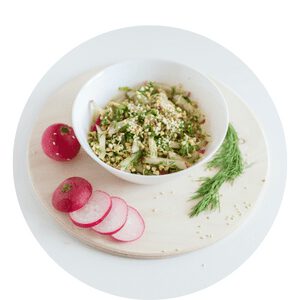
Radish Fertilizer Menu
Radishes and their nutritional needs
Radishes are a popular and nutritious root vegetable that can be grown year-round in many areas.
This cruciferous vegetable is full of vitamins, minerals, and antioxidants that can help improve overall health.
Radishes are relatively easy to grow, however they do require the right organic fertilizer to ensure healthy growth and high yields.
Organic fertilizer is an important part of cultivating radishes as it provides essential nutrients for their growth such as nitrogen, phosphorus, potassium, calcium and magnesium.
Additionally, organic fertilizers promote microbial activity in the soil which helps release these vital nutrients for the plants.
Organic fertilizers also help maintain soil structure by adding organic matter to keep the soil loose and well aerated for better root development — a major factor for successful radish cultivation!
The benefits of using organic fertilizers for radishes
Organic gardening has become increasingly popular in recent years and for good reason.
Using organic fertilizers is one of the best ways to ensure that your radishes get the nutrition they need to thrive.
Radishes are a nutrient-rich vegetable, but to maintain their flavor and health, they must be grown with quality organic fertilizer.
Organic fertilizers provide essential nutrients such as nitrogen, phosphorus, and potassium that are vital for healthy growth and development of your radish plants.
They also provide beneficial microorganisms which help in breaking down organic matter into more easily available form for the plant’s uptake.
Organic fertilizers can also improve soil structure and drainage which will help create an optimal environment for radish growth.
The drawbacks of using synthetic fertilizers for radishes
Synthetic fertilizers have been increasingly used to boost crop production and growth in modern agriculture.
While these chemical compounds are effective in improving the health of plants, there are several drawbacks associated with using synthetic fertilizers for radishes.
The potential environmental and human health impacts of using synthetic fertilizer on radishes can be serious.
The first drawback is that synthetic fertilizer can contain dangerous chemicals such as nitrates and phosphates which can seep into groundwater or runoff into streams and rivers, potentially polluting aquatic environments.
Additionally, when plants absorb too much nitrogen from the soil due to excessive use of synthetic fertilizers, they become less nutritious leading to a decrease in essential vitamins and minerals that humans receive from consuming them.
Finally, overuse of chemical fertilizers can lead to an increase in weeds, pests and diseases which further reduces quality yields for farmers.
Radish is so tasty, it grows ever so quickly, The best organic fertilizer for this root crop, makes its flavour really top, From start to finish in a month or two, for a delicious veggie stew. Only with good soil and nutrients galore, will what you harvest be sure to soar.
Chappy The Gardener
The top organic fertilizers for radishes
Here are a few examples of organic fertilizers that can be used for radish plants:
Compost: Compost is a great all-around fertilizer for radishes and other vegetables. It helps to improve soil structure, nutrient content, and water retention.
To use compost as a fertilizer, mix it into the soil before planting or apply it as a top dressing around the base of the plants.
Fish emulsion: Fish emulsion is made from the by-products of fish processing and is high in nitrogen, phosphorous, and trace minerals. It can be applied as a liquid fertilizer or mixed into the soil before planting.
Be sure to follow the recommended application rates and avoid over-fertilizing, as this can lead to leaf burn.
Kelp meal: Kelp meal is a dry fertilize made from seaweed and is high in micronutrients and trace minerals. It can be mixed into the soil before planting or applied as a top dressing.
Kelp meal is slow-release and helps to improve soil structure and promote healthy plant growth.
bone meal: Bone meal is a dry fertilizer made from ground animal bones and is high in phosphorous, which is important for root development. It can be mixed into the soil before planting or applied as a top dressing.
Avoid using bone meal on plants that are sensitive to high levels of phosphorous, such as tomatoes and peppers.
worm castings: Worm castings are a type of compost made by worms and are rich in nutrients and beneficial microbes. They can be mixed into the soil before planting or applied as a top dressing.
Worm castings are a slow-release fertilizer and help to improve soil structure and water retention.
Tips for choosing the best organic fertilizer
Organic fertilizers are a great choice when it comes to growing healthy, nutrient-rich radish plants.
Choosing the best fertilizer for your needs can be tricky, as there are many factors to consider.
When selecting an organic fertilizer for your radish plants, you should take into account soil type, climate conditions and the stage of growth of the plant.
For example, sandy soils may require more frequent application of an organic fertilizer in order to provide adequate nutrients for your radishes.
If you live in a warmer climate, you may want to opt for a slow release fertilizer that will provide nutrients over time.
Additionally, if your radishes are in their early stages of growth or about to flower, look for a fertilizer with higher nitrogen content than one used during post-harvest stages.
How to properly apply organic fertilizers
Organic fertilizers are a great way to give your radish plants the nutrients they need for optimal growth and yield. Radishes are an easy-to-grow cool-season crop that can be planted for early spring harvests or late summer/early fall harvests. Using the right organic fertilizer and applying it properly can help you get the most out of your radish crop.
When selecting an organic fertilizer, look for one with a balanced ratio of nitrogen, phosphorus, and potassium—the three primary macronutrients needed by all plants. For best results, use a liquid fertilizer as opposed to granular or powdered varieties; this will ensure that the nutrients are quickly absorbed by your radish plants’ roots. Apply the fertilizer once every two weeks during active growth stages while avoiding contact with foliage to prevent damage.
The importance of soil testing
Soil testing is an important part of any successful vegetable garden.
Knowing the exact composition of your soil helps you determine the best approach to fertilizing and planting, and ultimately will lead to a healthier and more productive garden.
In particular, it’s essential to understand which nutrients are already present in the soil when choosing the best organic fertilizer for radish.
When selecting a fertilizer, it’s important to take into account your soil’s pH level, nitrogen levels and other macro-nutrients such as phosphorus, potassium and magnesium.
Radishes prefer neutral pH levels (6-7), high nitrogen content and moderate amounts of both phosphorus and potassium.
Too much or too little of any nutrient can lead to stunted growth or even death for your crops.
The role of compost and other organic matter
Compost and other organic matter play an important role in helping to fertilize radish plants.
Compost is made up of organic materials such as yard trimmings and food waste that are broken down by bacteria and fungi into a nutrient-rich soil amendment.
This amendment helps to nourish the soil, providing essential nutrients for the radishes to grow strong and healthy.
Other organic matter, such as manures from livestock, can also be added to the soil to provide additional nutrients for radishes.
Manure is especially beneficial because it contains high levels of nitrogen which boosts plant growth when used as fertilizer.
In addition to compost and manure, there are various types of natural fertilizers available that can help promote growth in radish plants.
Using organic fertilizers in combination with other sustainable gardening practices
Organic fertilizers are an important part of any sustainable gardening practice.
When combined with other sustainable gardening practices, such as crop rotation and cover cropping, organic fertilizers can help to maximize the health and growth of plants.
Crop rotation helps to replenish soil nutrients and reduce the chances of pests or diseases plaguing plants.
Cover cropping tills the soil, reduces erosion, and provides additional nutrients for growing plants.
Combining these practices with organic fertilizers can provide a robust foundation for healthy plant growth in any garden.
Organic fertilizers can be used to give radishes an extra boost during their growing season.
Not only do they provide essential nutrients for optimal growth, but they also help to protect against disease-causing organisms which may exist in soil or water sources that could otherwise harm developing crops.
In conclusion, organic fertilizers are a great choice for growing radishes.
Organic fertilizers can provide the nutrients needed to ensure healthy and successful radish growth, while also avoiding the use of chemicals and other synthetic materials that can be harmful to the environment.
With a little bit of research and planning, organic fertilizer can be used in any garden or field to maximize vegetable production.
Click To Grow
Helps Us Grow – Share If You Like






